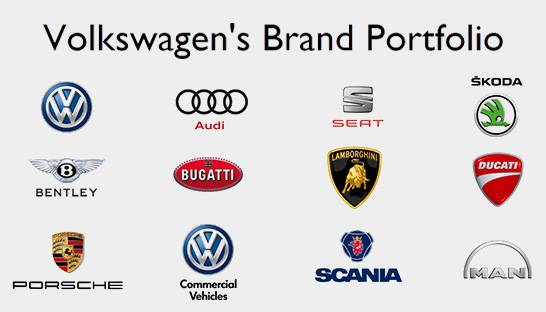Volkswagen price prediction for 2025
Volkswagen's Overview
Volkswagen AG is one of the world's leading automobile manufacturers and the largest carmaker in Europe. The company operates in four segments: Passenger Cars, Commercial Vehicles, Power Engineering, and Financial Services. Its diverse portfolio includes iconic brands such as Audi, Porsche, and Lamborghini, positioning it strongly across multiple market segments.
Current Market Analysis
- Volkswagen operates in a highly competitive automotive industry, facing significant competition from manufacturers like Toyota, Tesla, and General Motors. As the market transitions to electric vehicles (EVs), Volkswagen has prioritized its EV strategy to capture market share.
- Despite these efforts, the company has faced challenges from external economic factors, such as tariff threats and overcapacity concerns, particularly in Europe and China, two critical markets for Volkswagen.
Key Factors Influencing Volkswagen's Future
Threat from Tariffs
Volkswagen is grappling with potential tariffs on vehicles and components, especially in the United States and post-Brexit Europe. Such tariffs could significantly increase costs, impacting profit margins and competitiveness in crucial markets. The company is actively lobbying for favorable trade agreements to mitigate these risks.
Slowed Down Verification
Delays in regulatory verification for new models and technologies, particularly in the EV space, have hindered Volkswagen's ability to bring vehicles to market quickly. These delays, often linked to stringent emission standards and compliance checks, create bottlenecks in production and revenue generation.
Inflation
Rising inflation rates have increased production costs, from raw materials like lithium and nickel for EV batteries to transportation and logistics. Volkswagen has implemented cost-cutting measures and price adjustments, but these have not fully offset the impact of inflation, challenging its ability to maintain profit margins.
Overcapacity and Union Problems
Volkswagen faces overcapacity in several plants, particularly in Europe, where production exceeds demand. This has been exacerbated by union resistance to restructuring efforts aimed at optimizing efficiency. Ongoing labor disputes have also led to interruptions, highlighting the need for delicate negotiations with worker unions.
German Economic Struggles
Germany’s broader economic challenges, including slow GDP growth and energy costs, have affected Volkswagen's domestic operations. The economic environment has impacted consumer confidence and purchasing power, posing additional challenges to sustaining demand in its home market.
Recent Agreements
Volkswagen has entered into several strategic agreements recently, including partnerships with battery manufacturers and renewable energy providers. These agreements aim to secure the supply chain for EV production and enhance sustainability initiatives, providing long-term benefits to its operational strategy.
Publicly Available Forecasts & Price Targets
Based on analyst predictions and financial models, Volkswagen's stock price is expected to grow, driven by its robust EV strategy and diversified brand portfolio. Analysts project a potential price range between €182 and €326 by 2025, with growth contingent on successfully navigating macroeconomic challenges and internal restructuring efforts.
Institutional Insights
- Institutional investors remain optimistic about Volkswagen’s EV transition. The company’s investment in advanced battery technology and autonomous driving solutions are seen as key differentiators in capturing market share.
- Recent funding initiatives and partnerships with key technology providers have bolstered investor confidence, though close monitoring of execution timelines remains crucial.
Retail Sentiment
- Retail investors generally perceive Volkswagen as a stable investment due to its legacy and brand strength. However, concerns around overcapacity, union disputes, and German economic struggles temper enthusiasm.
- Social media sentiment reflects cautious optimism, with discussions often focusing on the company’s ability to overcome short-term hurdles while capitalizing on EV opportunities.
Rumors and Speculation
- Speculation around Volkswagen’s potential expansion into emerging markets, particularly in Asia and Africa, has fueled optimism about long-term revenue growth.
- Rumors of breakthrough advancements in solid-state battery technology could significantly enhance its EV offerings, positioning the company as a leader in innovation.
Potential Risks
- Regulatory challenges remain a top concern, with stringent emissions standards and compliance requirements adding to operational complexities.
- Supply chain disruptions, including semiconductor shortages and raw material price volatility, continue to impact production timelines and profitability.
Positive Developments
Volkswagen’s recent strategic moves have positioned it for long-term success:
- The company’s commitment to EV production is evident in its ambitious goals to become a leading global EV producer by 2030.
- Investments in renewable energy partnerships and carbon-neutral production facilities align with consumer and regulatory demands for sustainability.
- Expansion of digital services and connected vehicle technology adds new revenue streams and enhances customer experience.
In conclusion, Volkswagen AG presents a compelling case for investors, with significant opportunities in the EV market balanced by notable challenges. Careful monitoring of external factors like tariffs, inflation, and German economic conditions, along with internal initiatives to address overcapacity and union issues, will be key to realizing its potential.
